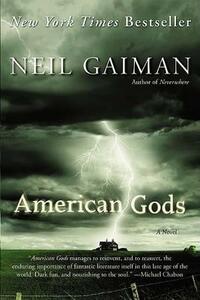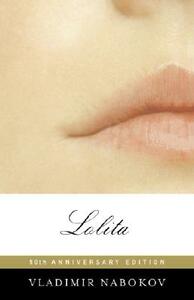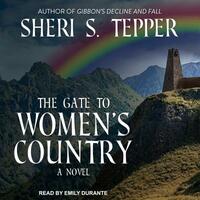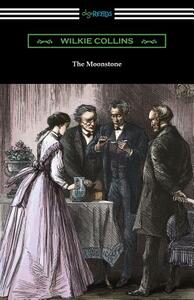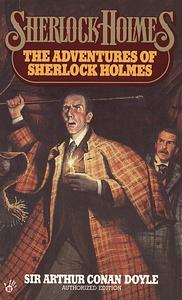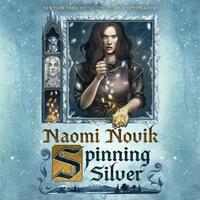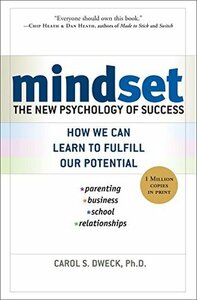You need to sign in or sign up before continuing.
Take a photo of a barcode or cover
rebeccazh's Reviews (2.89k)
Just realized I didn't write a review for this. I love Celie. There's something so likeable about her; I was drawn to her from the very first letter and I just devoured this book in one sitting. I love the letter format, I love the subtle switch from 'Dear God' to 'Dear Nettie' -- the final chains falling free. I also really appreciated Celie's desire/love for Shug, Shug's bisexuality, the community and friendships Celie gains, and most of all, the spirituality pervading the book. I think this is one of the favorite quotes I've ever read: I think us here to wonder, myself. To wonder. To ask. And that in wondering bout the big things and asking bout the big things, you learn about the little ones, almost by accident.
This was a great book. I love Martha Wells' books so I was excited for this release, and I'm glad to have read it. I really loved how awkward, sarcastic, funny, and stoic Murderbot was. I really liked them, and I'm really looking forward to the next book.
This is such a cute and delightful read! It's Sleeping Beauty, but written in a lighthearted way, with a whodunnit plot and some cool magic stuff. Delightful. I was so charmed. Totally recommend it, what an enjoyable read.
picked this up to get ready for the TV series, but the problem I have with a lot of Neil Gaiman's books is that they don't really hold my interest. I stopped at about 50% and I think I'll let the TV series fill me in on the rest.
So, after many years, I finally read this book. I think all that I want to say has been said already, but here are my thoughts: I love Nabokov's writing. Reading Humbert Humbert's narration repels but attracts me; it's beautiful, and it makes me so grossed out that such a disgusting topic can be made so beautiful.
Lolita, the girl, is both the Other and the Object. I distrust every claim Humbert Humbert makes about her -- he has never seen her; he only sees her as an object of desire/dream made flesh. Poor girl. It boils my blood to see articles or people claim that this is a love story. It emphatically is not. Occasional hints of truth peek out from Humbert Humbert's slippery narration, where he says things like:
"This was an orphan. This was a lone child, an absolute waif, with whom the heavy-limbed, foul-smelling adult had had strenuous intercourse three times that very morning."
I mean. You can't get clearer than that. But looking at the reception to this book, the fact that 'Lolita' has come to stand in for a sexually precocious girl, just disgusts me. It's a special kind of awful that we're in a world where a self-professed paedophile and murderer is romanticized as a tragic but devoted sort of lover, because we're so used to romanticizing possessive/abusive/controlling behavior by men. Or that girls want to be that nymphet/sexual siren Humbert claims twelve-year-old Lolita is. Because the thing about Lolita is that she is attractive to Humbert not for her sexual precociousness; it's precisely because she is not sexually mature that he lusts after her.
This novel really reminds me of an outsider's view (an outsider who found a home) of America, because of Nabokov's enamoured/fascinated, love-hate relation to American consumerism: the post-WWII culture of bad TV, consumer goods, jukeboxes, bad movies... Love the jabs he took at Freud. I can't stand Freud. The world Nabokov depicts is quintessentially American: even young girls are consumer goods.
Lolita, the girl, is both the Other and the Object. I distrust every claim Humbert Humbert makes about her -- he has never seen her; he only sees her as an object of desire/dream made flesh. Poor girl. It boils my blood to see articles or people claim that this is a love story. It emphatically is not. Occasional hints of truth peek out from Humbert Humbert's slippery narration, where he says things like:
"This was an orphan. This was a lone child, an absolute waif, with whom the heavy-limbed, foul-smelling adult had had strenuous intercourse three times that very morning."
I mean. You can't get clearer than that. But looking at the reception to this book, the fact that 'Lolita' has come to stand in for a sexually precocious girl, just disgusts me. It's a special kind of awful that we're in a world where a self-professed paedophile and murderer is romanticized as a tragic but devoted sort of lover, because we're so used to romanticizing possessive/abusive/controlling behavior by men. Or that girls want to be that nymphet/sexual siren Humbert claims twelve-year-old Lolita is. Because the thing about Lolita is that she is attractive to Humbert not for her sexual precociousness; it's precisely because she is not sexually mature that he lusts after her.
This novel really reminds me of an outsider's view (an outsider who found a home) of America, because of Nabokov's enamoured/fascinated, love-hate relation to American consumerism: the post-WWII culture of bad TV, consumer goods, jukeboxes, bad movies... Love the jabs he took at Freud. I can't stand Freud. The world Nabokov depicts is quintessentially American: even young girls are consumer goods.
read baskerville, sign of the four and the final problem for school
finished this in one afternoon. i really enjoyed this! it's quite different from the first book (what i remember of it anyway) but this book was very atmospheric and captured the feeling of a fairytale well.
i didn't really like the number of characters narrating. i'm really not a fan of ensemble casts. this book starts out with a single first person narrator and it then branches out into five(?) first-person perspectives. further confusing things is the fact that the narrators of each new scene aren't labelled so i had to guess. i really liked one of later additions to the cast though. the tsar's chapters were very entertaining. also, nearly all the female characters were women or girls who had little power or choice over their lives and they had fathers, husbands or lords who made choices for them, who then began to work together.
i liked the motif of giving/receiving (for free or for a price) and i wish we could've seen how love works in the staryk kingdom (which i found very interesting because it's a society based totally on transactions and i wish it was explored in more detail). also, i wish the whole book was focused on miryem because her chapters were the most compelling. i skimmed a lot of the other subplots.
there was also a motif about coldness of heart / being calculating vs. being overly indulgent / soft-hearted. being able to shut off one's heart is associated with personal power, such as being able to stand up for oneself and protect one's best interests, and being soft-hearted was portrayed as a weakness as it allowed others to take advantage of oneself (i thought at first that miryem's arc would be about balancing these two opposing viewpoints but it wasn't), and i kind of wish that had been explored as well.
overall, i really like novik's fairytale series and hope she does more stuff like this
i didn't really like the number of characters narrating. i'm really not a fan of ensemble casts. this book starts out with a single first person narrator and it then branches out into five(?) first-person perspectives. further confusing things is the fact that the narrators of each new scene aren't labelled so i had to guess. i really liked one of later additions to the cast though. the tsar's chapters were very entertaining. also, nearly all the female characters were women or girls who had little power or choice over their lives and they had fathers, husbands or lords who made choices for them, who then began to work together.
i liked the motif of giving/receiving (for free or for a price) and i wish we could've seen how love works in the staryk kingdom (which i found very interesting because it's a society based totally on transactions and i wish it was explored in more detail). also, i wish the whole book was focused on miryem because her chapters were the most compelling. i skimmed a lot of the other subplots.
there was also a motif about coldness of heart / being calculating vs. being overly indulgent / soft-hearted. being able to shut off one's heart is associated with personal power, such as being able to stand up for oneself and protect one's best interests, and being soft-hearted was portrayed as a weakness as it allowed others to take advantage of oneself (i thought at first that miryem's arc would be about balancing these two opposing viewpoints but it wasn't), and i kind of wish that had been explored as well.
overall, i really like novik's fairytale series and hope she does more stuff like this



